Nicotine and anxiety. Why do you feel relaxed after smoking?
Is this real relaxation or an illusion created by your addiction.. that feels very real?
Knowing the answer to this is the key to quitting smoking without anxiety.
So let me show you:
- 3 reasons why you feel more relaxed after smoking a cigarette (yes, you’re not imagining this, but there’s a reason for it).
- How to feel more relaxed as a non-smoker.
This article breaks down the myth of smoking as stress relief, which will help you quit smoking and remain smoke-free.
Why Smoking Seems to Help with Anxiety
After you smoke you feel relaxed, yes.
But this is weird. Because if smoking really relieved stress then smokers would be the most relaxed and Zen people ever… but that’s not the case.
Also, it’s physically impossible for nicotine to relax you. Because nicotine in small doses, like a couple of cigarettes, is a stimulant! So it does the opposite of relaxing you.
So why do you feel relaxed after smoking?
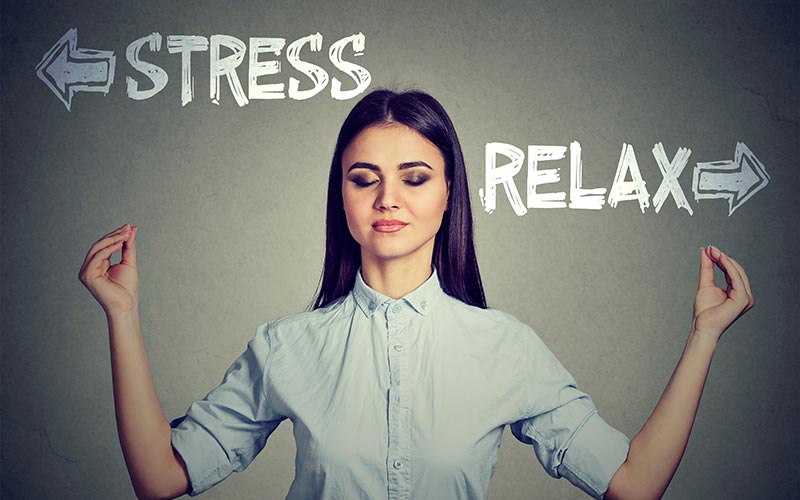
Reason 1. You Relieve the Stress Coming from Your Cravings (Not the Stress Coming from Your Problems)
Smokers have two sources of stress and anxiety:
- The stress that comes from life (that everyone has- smokers, ex-smokers, and never-smokers)
- And the stress coming from their cravings.
Why Cravings Cause Anxiety
Cravings cause physical and mental tension.
When you’re craving, you get physically agitated and tense. And you also get mentally agitated because the craving mind keeps nagging you to smoke, “You need a cigarette right now.” “Just one won’t matter.” “Come on, just one puff.” All these are mental cravings.
So you’re craving, you feel agitated, you take a few puffs, nicotine goes to your brain, the craving ends, and you feel relief.
But the cigarette relieved the stress coming from your cravings, not the stress coming from life.
How Nicotine And Anxiety Work
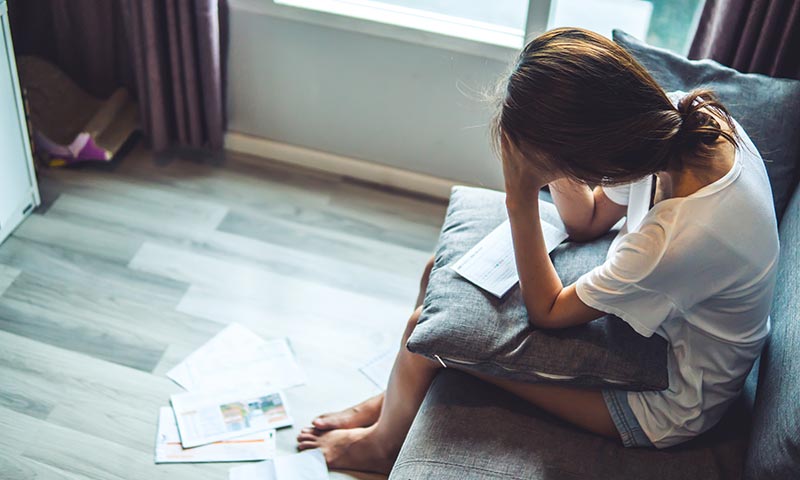
Imagine there’s Maria the non-smoker. And in a parallel universe, there’s Maria the smoker.
This is the same person; they have the same life. The only difference is that one of them is a non-smoker, and the other is a smoker.
So it’s Monday morning. Maria, the non-smoker, is having a stressful day; she has to pay the overdue bills, get the kids ready for school, catch up with work. She has too many responsibilities too much of life stress.
Maria the smoker is having the same stressful day. But she has an additional source of stress: her cravings.
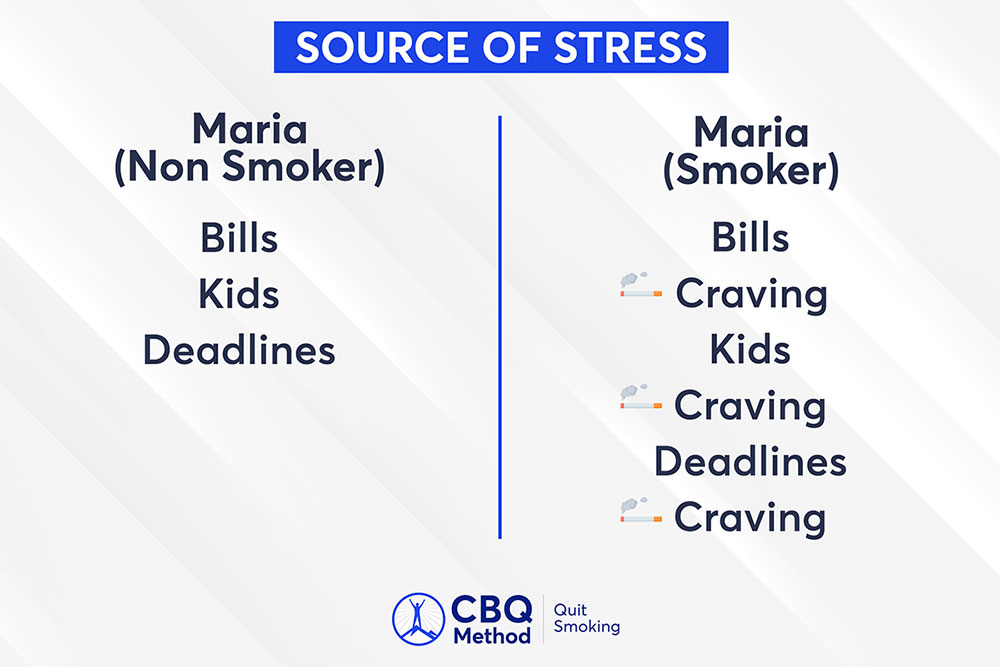
The overdue bills cause her anxiety. But she’s also experiencing craving anxiety. She smokes a cigarette, relieves the craving anxiety and she feels a bit better than before thinking the cigarette helped her cope with the overdue bills. But it didn’t. It just relieved her cravings.
Then she’s feeling anxious because she has to get her kids ready for school on time and at the same time she’s feeling tense because she’s craving.
She smokes a cigarette feels a bit better, thinking nicotine helped her feel calmer while getting the kids ready for school.
But in reality, smoking just relieved her nicotine craving. It didn’t help her get the kids ready faster.
Same thing with the deadlines, with the responsibilities, with everything.
So Maria the non-smoker goes on with her day while Maria the smoker has to smoke in order to go on with her day.
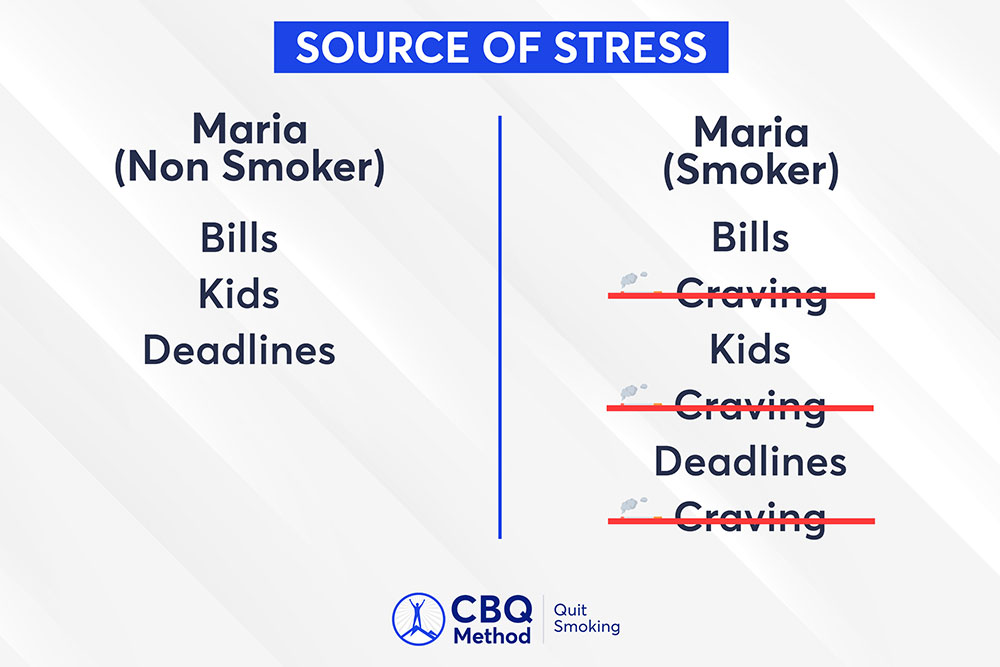
They both have the same life stress.
Maria the non-smoker is less stressed than Maria the smoker because she doesn’t have to worry about smoking or feel anxious when her body is low on nicotine.
When you’re a smoker every craving you satisfy relieves your stress momentarily and at the same time causes the next craving to come along. When it does, you’re going to have to satisfy that too, otherwise, you’ll feel anxious.
Every craving you satisfy gives rise to the next craving that soon comes back like an itch that won’t go away.
So smoking relieves the stress coming from your cravings. Nicotine solves the problem it creates and if you want to get rid of the smoker’s stress all you have to do is become a non-smoker.
Nicotine is the problem. Not the solution
– CBQ Method Principles
Reason 2. It’s All About Your Breathing
The second reason why you feel relaxed after smoking has to do with your breathing. What do I mean?
Our emotions affect our breathing.
For example, how do you breathe when you’re stressed, angry or tense?
Your breathing is shallow, fast, and interrupted. Right?
And how do you breathe when you feel relaxed, peaceful or relieved?
Your breathing is deep and slow.
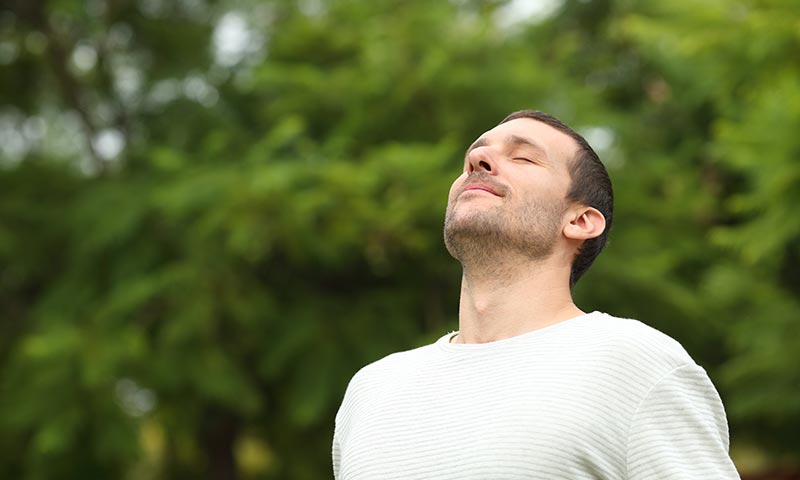
Our emotional state affects our breathing. Same way, we can affect our emotions by changing our breathing. It goes both ways.
When you’re stressed your breathing is tense. So you take a few puffs and in order for you to inhale the puffs your breathing has to change and become deep and slow. Otherwise, you can’t smoke!
When you smoke, you inhale deeply and slowly. So you feel relaxed thinking the cigarette helped..
But in reality it was the deep and slow breathing that relaxed you. Not the cigarette.
And you can relax without the cigarette, just by breathing deeply as if you were smoking a cigarette.
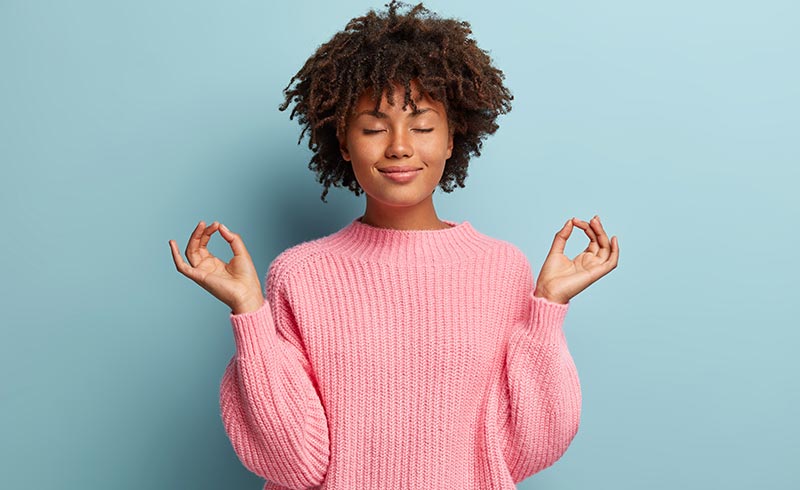
So next time you feel stressed try to breathe as if you were smoking a cigarette but without smoking. Try this and let me know what happened.
Reason 3. Nicotine Seems To Relieve Anxiety Because You’ve Forgotten How Relaxed Really Feels Like
If you’ve been smoking most of your life, chances are you never learned other ways to cope with stress and anxiety.
If every time you feel anxiety, you reach for a cigarette, you probably never got the chance to learn and practice how to cope with the ups and downs of life in healthy ways.
And maybe you’re going to tell me “Smoking is the only thing that relaxes me”. But compared to what?
It’s not that you have 10 different ways to cope with stress and smoking is the best one. It’s just that smoking is all you know.
Check how Valerie copes with anxiety as a non-smoker (After smoking 2 packs a day for 40 years)
On top of that, all of us who’ve been addicted to nicotine we don’t really know what relaxed feels like until we quit.
When you smoke you feel better because you relieve your cravings and breathe deeply. But better does not mean good. “Not craving” is not the same state as “feeling relaxed”. These are different states.
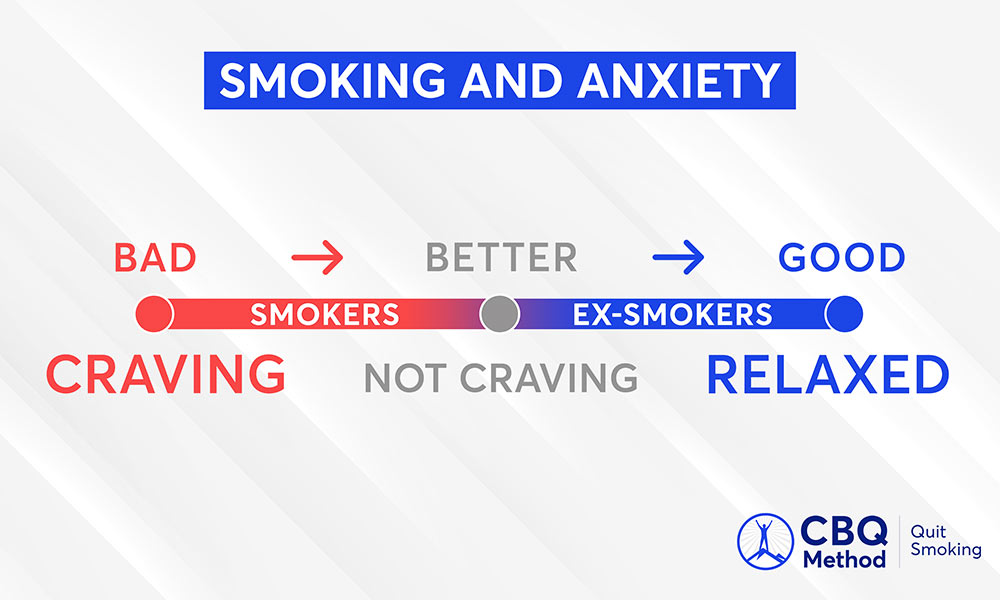
But in your mind they’re the same because you don’t have any other point of reference of how relaxed really feels like. You have forgotten how relaxed feels like.
I encourage you to start observing other smokers and start observing yourself too. Do you really live life as a relaxed person?
Probably not. Otherwise, you wouldn’t be here reading this article on nicotine and anxiety.
Although smoking a cigarette might feel like an effective mood control… nicotine dependency increases your anxiety.
Think about it. Feeling that you need a cigarette all the time, having to interrupt your life because of a craving, worrying about how you might be harming your health, feeling guilty about smoking.
The wonderful thing is that the smokers’ stress goes when you stop. Becoming a non-smoker is not only going to stop the stress coming from your cravings but it’s also going to reduce the stress coming from life.
And research shows that quitting nicotine decreases overall anxiety. So there are great things waiting for you once you stop smoking.
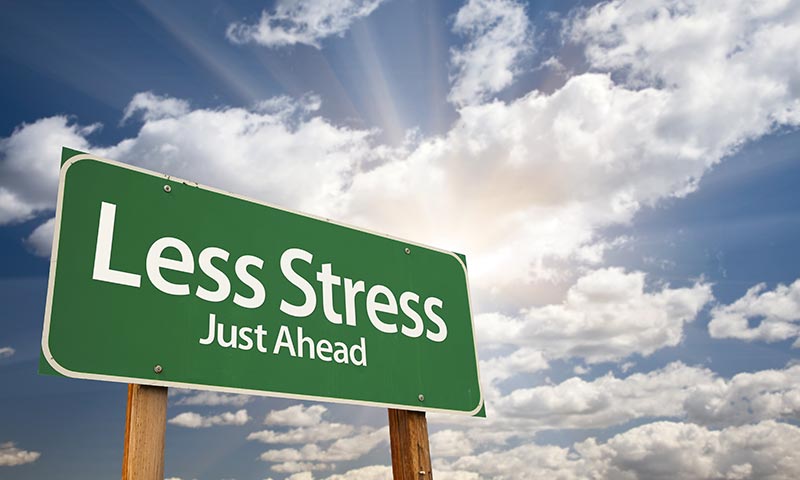
3 reasons nicotine seems to help with anxiety:
- You feel relaxed because you relieve the stress coming from your cravings, not the stress coming from your problems.
- When you smoke you change your breathing from shallow to deep and slow, which makes you feel relaxed.
- You don’t know what relaxed really feels like – you only know what not craving feels like.
To quit nicotine and decrease anxiety, you need to work on your mental addiction and the CBQ method helps you do that.
CBQ stands for Cognitive Behavioral Quitting. The CBQ method is a psychology-based method that over the last decade, has reached and helped millions of smokers quit easily, myself included. To develop this method, we took what happy non-smokers had in common, and we put it in a 4-step process that everyone can use to succeed.
To get started with the CBQ Method, you can get the foundational video and PDF starter guide of the CBQ Method.
In this video, I show you why the CBQ method can work for you & how the 4 quit smoking stages of the CBQ method work together so you can learn how to cope with anxiety and the ups and downs of life as a non-smoker. The accompanying guide will help you map out your quit, take notes, and remember important tips.
Get the Foundational Video & PDF Starter Guide of the CBQ Method here.

